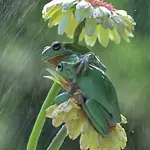our recommended resources
Books & Articles
Breaking Together: A Freedom-Loving Response to Collapse
Jem Bendell
The collapse of modern societies has already begun. That is the conclusion of two years of research by the interdisciplinary team behind Breaking Together. This book describes people allowing the full pain of our predicament to liberate them into living more courageously and creatively.
Prayer for the Earth: An Indigenous Response to these Times
Stan Rushworth
As the world rushes toward the brink of biospheric collapse, many people are now looking to traditional Indigenous wisdom for guidance on how to live sustainably. Yet Stan Rushworth, a professor of Native American Studies and an elder of Cherokee descent, believes a different kind of wisdom is revealed once there’s a willingness to face the truth about genocide and loss of right relationship to the rest of life.
Beyond Hope
Deb Ozarko
In her outspoken way, Deb Ozarko exposes the madness of the cultural conditioning that has separated humanity from the web of life that sustains existence. Deb's site contains her blog and the Unplug podcast which is all about evolutionary activism, personal transformation, planetary hospice, and living a deeply connected life in a collapsing world. No sound bites, no life hacks, no b.s.
We are the Middle of Forever: Indigenous Voices from Turtle Island on the Changing Earth
Edited by Dahr Jamail & Stan Rushworth
A powerful, intimate collection of conversations with Indigenous Americans on the climate crisis and the Earth's future. Although for a great many people, the human impact on the Earth was not apparent until recently, this is not the case for all people or cultures. For the Indigenous people of the world, radical alteration of the planet, and of life itself, is a story that is many generations long. They have had to adapt, to persevere, and to be courageous and resourceful in the face of genocide and destruction--and their experience has given them a unique understanding of civilizational devastation.
Bright Green Lies: How the Environmental Movement Lost Its Way and What We Can Do About It
Derrick Jensen, Lierre Keith, Max Wilbert
Bright Green Lies systematically debunks many of the lies and distortions that characterize the discourse of those who argue that 'technology will stop global warming' or that 'technology will save the planet.' The book has a chapter devoted to debunking claims that each of following will individually or collectively power this culture sustainably; or help the planet: solar power, wind power, recycling, 'efficiency, ' batteries and other forms of energy storage, changes in the electrical grid, and hydropower.
Overshoot: The Ecological Roots of Revolutionary Change
William Catton
A calm but unflinching realist, Catton suggests that we have already overshot the Earth's capacity. He contradicts those scientists, engineers, and technocrats who continue to write optimistically about energy alternatives. Catton asserts that the technological panaceas proposed by those who would harvest from the seas, harness the winds, and farm the deserts are ignoring the fundamental premise that "the principals of ecology apply to all living things." These principles tell us that, within a finite system, economic expansion is not irreversible and population growth cannot continue indefinitely.
Die Wise: A Manifesto for Sanity and Soul
Stepen Jenkinson
with lyrical prose, deep wisdom, and stories from his two decades of working with dying people and their families, Stephen Jenkinson places death at the center of the page and asks us to behold it in all its painful beauty. Die Wise teaches the skills of dying, skills that have to be learned in the course of living deeply and well.
The Wild Edge of Sorrow: Rituals of Renewal and the Sacred Work of Grief
Francis Weller
Francis Weller provides an essential guide for navigating the deep waters of sorrow and loss in this lyrical yet practical handbook for mastering the art of grieving. Describing how Western patterns of amnesia and anesthesia affect our capacity to cope with personal and collective sorrows, Weller reveals the new vitality we may encounter when we welcome, rather than fear, the pain of loss.




























